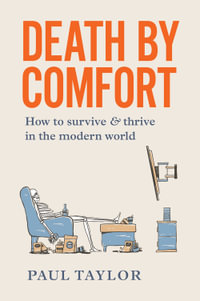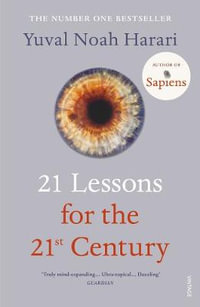
Islamic Culture and Pre-Islamic Beliefs in Central Asia
By: Mihai Dragnea (Editor, Contribution by), Dorina Dragnea (Editor, Contribution by), Antonio Alonso Marcos (Editor)
Hardcover | 15 September 2024
At a Glance
316 Pages
22.9 x 15.2
Hardcover
RRP $206.00
$160.75
22%OFF
or 4 interest-free payments of $40.19 with
orAims to ship in 5 to 10 business days
Over thousands of years, Central Asia has been a bridge between different religions and cultures. The introduction of Islam in the seventh century CE ushered in an era of social and cultural change to the region, which saw both new beliefs and practices, as well as some pre-Islamic sacred places being transformed into Islamic ones, and the cult of saints absorbing elements of both local and Arab mythology. Islamic Culture and Pre-Islamic Beliefs in Central Asia, a project initiated by the Balkan History Association, focuses on Islamic culture, traditions, and pre-Islamic beliefs in Kazakhstan, Kyrgyzstan, Tajikistan, Turkmenistan, and Uzbekistan. In a broader sense, it promotes the history and culture of Central Asia in Southeast Europe. The chapters emphasize the importance of religious life, the significance of certain "sacred places," which became major places of worship, and their role in the socio-spiritual life of Central Asian society. Local or "folk" forms of Islam and their historical and cultural background are also discussed. This volume includes research spanning a period from antiquity to the Post-Soviet era to explore how landscapes of religious places and practices were interpreted and reinterpreted through time.
Industry Reviews
Islamic Culture and Pre-Islamic Beliefs in Central Asia is a unique scientific work, that brings together the research of various authors on Islamic culture, traditions, and pre-Islamic beliefs in Kazakhstan, Kyrgyz Republic, Tajikistan, Turkmenistan, and Uzbekistan. Each author reveals a specific issue regarding the relationship between state power and religion, about the history of the spread of a certain religion on the territory of a particular state. Some authors have done a lot of work to conduct a comparative analysis of the spread of certain religious movements in different countries in a certain period. Also in the book you can find interesting information about holy places in Central Asia. Of particular interest may be the part of the book that describes the processes of the rituals around the holy places.
--Yesbol Omirzhanov, Kazakh National Agrarian Research University"An insightful exploration into the rich tapestry of Islamic culture and pre-Islamic beliefs in Central Asia. This volume offers a compelling and comprehensive analysis, shedding light on the historical, cultural, and religious dynamics that have shaped the region. A must-read for scholars and enthusiasts alike, this book deepens our understanding of the complex interplay between tradition and transformation in Central Asian societies."
--Safarov Shaxriyor, Samarkand State Foreign Languages Institute"In this book, you will learn about the various religious beliefs and rituals of Central Asian societies, such as pre-Islamic Tengrism, Shamanism and Atheism, as well as the emergence and history of Islam in this region. How these religious beliefs and rituals shaped the lives of communities in this region and the stages of historical development of these beliefs. The book talks about Hizb ut-Tahrir's attempts to dominate and shape social identity in the region, the fight against Sunni Shiites, and the anti-religious campaigns of the Soviet administration. The Qashqai people's beliefs and conceptual units in religious discourse, the characteristics of the Oghuz and the Karakalpak language, and how the social identity and Islamic faith left behind by the Soviet regime shaped the understanding and style of government in some regions of Central Asia."
--Mirgul Enterieva, Gazi University"Scholarship on Central Asia long remained influenced by the security paradigm of the Cold War. This paradigm also influenced interpretations of the role of Central Asian Islam. The field of Central Asian studies has since matured and new generations of scholars have emerged. Scholarship on religious life in Central Asia have moved on to discussions on the significance for the region of Muslim traditions, the reminiscences of pre-Islamic beliefs, and the continuity, interruption, and transformation of Islamic practices. This study highlights the diversity of current scholarship on the region and offers new perspectives on religious life there."
--Michael Fredholm, Ippeki Research Institute"The volume Islamic Culture and Pre-Islamic Beliefs in Central Asia is a timely collection of the articles dedicated to religious practices, development of religious profile through centuries-long history, the heritage of Soviet religious policy and its influence in Central Asian countries. Topics covered in the volume range from the characterization of Hizb ut Tahrir to the patterns of coinage in early Islamic times. I do believe that such multidisciplinary publication is the best way to give a flavor of the region to everybody, whether from the academic community or not, who is interested in such a fascinating crossroad of civilizations."
--David Darchiashvili, Ilia State University"This book delves into a profound exploration of Central Asia, taking readers on a remarkable voyage through the intricate interplay between Islamic customs and the evolution of the region from the Soviet period to the present day. It commences by recounting the endeavors of the Soviet regime to impose secularization upon these profoundly religious societies, navigating through phases characterized by strict atheism until a reluctant acknowledgment of faith emerged. Transitioning into the post-Soviet landscape, one witnesses how historical reverberations continue to shape current perspectives on Islam, giving rise to a multifaceted mosaic of convictions and heritage. The book explores the significant influence of Islamic sanctuaries on political dynamics, highlighting the enduring practices of ancient rituals predating Islam. It delves into the intricate interweaving of national identity and religious convictions through a collection of personal narratives. Additionally, it thoroughly examines the subtle interpretations of mythical ideas within the Karakalpak dialect, ultimately concluding with a captivating exploration of the cultural practices and beliefs held by the nomadic Qashqai community in Iran. For those interested in exploring this volume, the appeal lies not only in its academic analysis but also in its intimate narratives and eye-opening disclosures. This book serves as a compass for unraveling the intricate connections among faith, history, and culture within Central Asia. It delves into the interplay of these elements, shedding light on the enduring strength and flexibility of human convictions. Whether you are an avid history enthusiast, a passionate admirer of diverse cultures, or simply intrigued by the complex interweaving of religion within communities, embarking on this literary adventure is certain to be an enriching experience filled with valuable insights."
--Kamakshi Wason, director of academic programmes, Tillotoma Foundation"This volume is an excellent contribution to the field of Islam in Central Asia and will benefit scholars and students of Islam and Central Asia alike. The range of articles showcases the diversity of approaches to how people practice and understand Islam in the region. Geographically, Central Asia exists at the confluence of cultures, and the complex history of the region has brought a diversity of religions and ideologies, including communism, into conversation. This has led to unique perspectives by residents of the region, and offers students of Islam a window into the range of possibilities for both practice and belief within that tradition."
--Jennifer Rose Webster, University of Washington"This volume is well-organized and thoroughly researched, covering topics as diverse as Islam and its history, as well as pre-Islamic beliefs and local traditions in Central Asia. This work reveals the importance of some pre-Islamic rituals in the formation of the social and spiritual life of this region, demonstrates the role of Islamic traditions, which are inextricably linked with the past and cultural heritage of the Muslims of the region. Remarkable contribution to the study of Islam, Central Asia and its religious movements, politics, religious history, and culture."
--Malika Ziyamova, City University of New York"This volume, which explores the rich mosaic of Islamic cultures and pre-Islamic beliefs in Central Asia, represents a valuable contribution to the literature. With insights into political Islam, material culture, sacred spaces, memory, and ethnic identity, this interdisciplinary work offers a comprehensive overview of the religious heritage and cultural diversity present in the region. It addresses issues ranging from the enduring legacy of pre-Islamic tradition to the Soviet past and language. By investigating the historical and spiritual panorama of the area, this volume also helps to understand contemporary Central Asia."
--Jessica Venturini, Sapienza University"This volume is an exciting addition to the scholarship of Central Asia. This region has provided the fulcrum between different peoples and cultures. This volume, for the first time in recent scholarship, tackles the complexity of these interactions, and in particular, the impact that beliefs had on this critical space in the ancient world. The chapters explore a range of issues from the ancient to the Soviet era and will be vital for scholars of the region."
--Tim Williams, PhD, Emeritus Professor of Silk Roads Archaeology, University College London"This volume provides a thorough exploration of the multifaceted landscape of contemporary Central Asia. Delving into the social, cultural, linguistic, and political dimensions, the authors trace their roots from the Soviet era, through Islamic influences, and back to pre-Islamic times. With eleven meticulously crafted articles, appealing to scholars and enthusiasts keen on understanding the intricate formation of beliefs and ideologies in Central Asia and Iran, the book offers original and profound insights."
--Leila Rahimi Bahmany, PhD, Utrecht University"Islamic Culture and Pre-Islamic Beliefs in Central Asia is an impressive interdisciplinary collection of scholarly chapters written by leading researchers in their fields, including Central Asian history, political science, archaeology, anthropology, and linguistics. Expertly edited by Mihai Dragnea, Dorina Dragnea, and Antonio Alonso Marcos, the book offers a wide-ranging examination of topics relating to Islamic life among the peoples of the former Soviet Central Asian republics of Kazakhstan, Kyrgyzstan, Tajikistan, Turkmenistan, and Uzbekistan. This excellent and thought-provoking volume makes a critically important contribution to a growing body of research on Islam in Central Asia."
--Kenneth J. Yin, City University of New York"This volume investigates the nuanced evolution of Islam in Central Asia across the pre-Soviet, Soviet, and post-Soviet eras, offering insights into religion's multifaceted influence from diverse socio-cultural and political perspectives. As contributors illuminate, Islam served as a catalyst for modernization in fields such as language, architecture, and poetry while simultaneously presenting violent manifestations regarding gender roles, governance, and interfaith relations. While some editions examine Islam's resurgence during the colonial period, others analyze its revival in the postmodern era; this volume adeptly presents Islam's socio-cultural development within three interwoven historical frameworks, offering a balanced portrayal of its complex evolution over time.
The volume also presents the perspectives of both insiders and outsiders who have contributed to understanding Islam from diverse geographical viewpoints yet within a shared research framework. By incorporating a range of viewpoints and experiences, this approach enriches the work's academic integrity. It facilitates a more comprehensive understanding of Islam's multifaceted role in the region's everyday life, its interactions with other geographic areas, and its relationships with other religions."
--Cholpon Turdalieva, Professor at American University of Central Asia, Bishkek, KyrgyzstanISBN: 9781666969290
ISBN-10: 166696929X
Published: 15th September 2024
Format: Hardcover
Language: English
Number of Pages: 316
Audience: Professional and Scholarly
Publisher: ROWMAN & LITTLEFIELD PUBLISHERS
Country of Publication: US
Dimensions (cm): 22.9 x 15.2
Shipping
| Standard Shipping | Express Shipping | |
|---|---|---|
| Metro postcodes: | $9.99 | $14.95 |
| Regional postcodes: | $9.99 | $14.95 |
| Rural postcodes: | $9.99 | $14.95 |
How to return your order
At Booktopia, we offer hassle-free returns in accordance with our returns policy. If you wish to return an item, please get in touch with Booktopia Customer Care.
Additional postage charges may be applicable.
Defective items
If there is a problem with any of the items received for your order then the Booktopia Customer Care team is ready to assist you.
For more info please visit our Help Centre.
You Can Find This Book In

Renegotiating Masculinities in European Digital Spheres
Routledge Studies in New Media and Cyberculture
Hardcover
RRP $284.00
$200.95
OFF






















